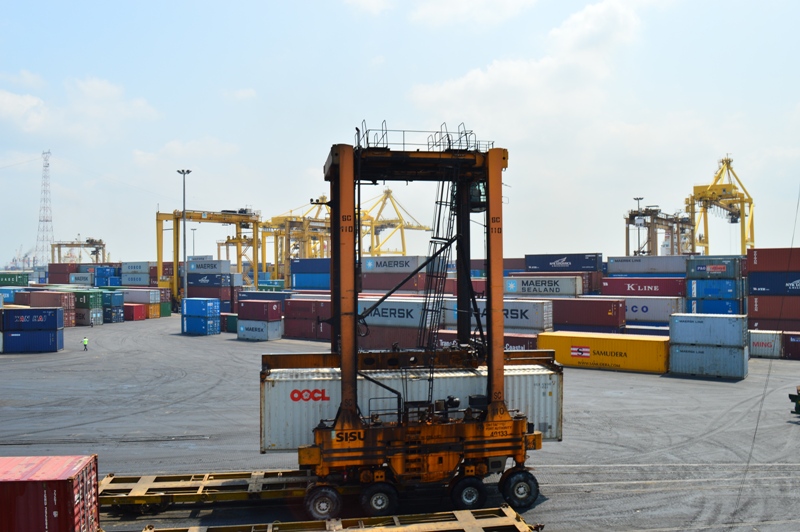Around 8:30 this morning, a nine-member team of American diplomats and other officials left the Radisson Hotel in Chittagong for a meeting with Chittagong Port Authority Chairman Rear Admiral S M Moniruzzaman.
The team comprised US Chargé d’Affaires Tracey Ann Jacobson, Economic Officer Darrel Richard Rasmussen, Agriculture Attache Sarah Gilleski, Senior Humanitarian Adviser (Rohingya Response) Lindsay Harnish, and other officials drawn from the American Regional Security Office and the Bangladesh Special Branch.
The purpose of the US team’s visit to Chittagong Port was to observe the arrival of USG commodity shipments and the subsequent de-stuffing of the commodities for transfer to the partner warehouse. The US officials’ meeting with Moniruzzaman and his team itself was for 10 minutes, following which they took a tour of the port before leaving for Chittagong.
The American diplomats’ visit to the Chittagong Port comes at a time when there is intense social media chatter of an imminent commercial granting of the port’s development to UAE-based DP World, which is a global leader in smart logistics and port operations, with significant US investment.
The Yunus-led interim authority has also now finalised plans to award a contract for the operation and maintenance of the newly built third terminal of Bangladesh’s Shah Jalal International Airport to a British company, knowledgeable sources said.
The operations and maintenance work was earlier scheduled to be given to a Japanese consortium comprising Japan Airport Terminal Company, Sumitomo Corporation, Sojitz, Narita International Airport Corporation, Sojitz Corporation General Trading Company, and Jalux Inc.
This consortium had earlier lobbied for the operations and maintenance work for the airport’s third terminal since the facility’s construction, at a cost of US$ 2.5 billion, with Japanese financial support.
Earlier last month, DP World Chairman and CEO Sultan Ahmed Bin Sulayem met Bangladesh interim authority Chief Adviser Mohammad Yunus in Dhaka as a follow-up to earlier discussions held in Davos, Switzerland, where the port major expressed investing in Chittagong Port’s new mooring and container terminal.
The proposed investment and partnership were said to be aimed at reducing traffic congestion, improving efficiency and lowering carbon footprints in Bangladesh’s busiest port.
But behind DP World’s business interest lies a deeper geopolitical aim – advancing US interests – in a region that is increasingly taking centre stage in an intense powerplay involving primarily the US and China and to a lesser extent India.
The Yunus-led interim authority took an in-principle decision in December 2024 to appoint DP World and a Singapore-based company to develop a terminal at Chittagong port, with the option of keeping open further negotiations.
Suddenly, on January 1, 2025, the Chittagong Port Authority invoked national legal instruments to forbid agitations and other activities deemed illegal among port workers. The ostensible reason behind this move was to instill professionalism among CPA workers by making unlawful associations, strikes, agitations and posting messages on social media punishable acts.
By invoking specific provisions of a 1979 law related to public servants, the CPA forbade public criticism and questioning of decisions taken by the government or the port authorities. The CPA order further prohibited employees from expressing anger or disagreement with decisions taken by the government or port authorities.
Additionally, the CPA sought to prevent employees from exerting pressure on the port authorities against any decision taken or order issued to change, amend or excise any law related to the port business plans. Of greater concern was the directive’s objective to impose “stringent punishment” against employees found to “spread disaffection” or “hostility” against or among themselves and the port authorities.















